Si Steers takes a look at the jigsaw that is Liverpool FC, assessing the club on and off the pitch and discussing the numerous signs of progress.

Liverpool is a City with a rich musical heritage; and whilst the anthem of Liverpool FC is You’ll Never Walk Alone, made famous by Gerry and the Pacemakers, it is perhaps Liverpool’s finest export, the Beatles, that now provide the soundtrack to the club’s current state. Whilst some natives may think ‘Day Tripper’ is appropriate (tongue firmly in cheek) – ‘The Long and Winding Road’ is perhaps a fair assessment of the journey the club is on at present.
The first season under Brendan Rodgers has been a mixed bag, but has not thrown up any real surprises. In a year zero project you expect inconsistency; what you have to do is look for signs that what you are building is laying foundations for long term progress. And there have been plenty of signs that we are heading in the right direction.
There has been some naivety on and off the pitch; but there has also been signs that when mistakes have been made, the people leading the club are learning from them.
A great sportsman once said:
“I’ve failed over and over again in my life and that is why I succeed”.
That man was Michael Jordan, possibly the best basketball player of all time. There are many people and organisations that have achieved success by learning from failure.
Whilst the majority of supporters might scoff at the thought of failure, linking to mediocrity, it is true that throughout history the greatest successes have arisen from failure. It is how you learn. Liverpool shouldn’t be afraid to fail – it is that fear of failure that has possibly held us back for a generation. You can sometimes sense it at Anfield.
Whilst there is still healthy scepticism about the direction Liverpool are going in under FSG; there is a strong case that the club is finally facing the ‘right’ direction. And this is why:
On the pitch
‘A seventh place finish with 61 points will never be good enough for Liverpool Football Club’ – that statement has a tinge of arrogance to it. Whilst it is true that our ambitions should always be first place, there are moments in time where reality and resources dictate otherwise. We have no right to success, we have to earn it.
This season has been pretty much par. It has been the first year of a long term project, where a number of youngsters have been blooded in. It has had its ups and downs; with some brilliant performances giving hope that a new philosophy and style is starting to take shape, and a few stark reminders of the mental fragility that has plagued the club for what seems like an eternity.
We were given a horrendous start with City, Arsenal and United in our opening five games. The stats show that after our first six games, our form was very close to top 4 (thanks to Andrew Beasley). Of course you can’t write off the opening six games, but that is an indicator we got much better as the season progressed.

The first half of the season was difficult as we had a real shortage of attacking players. But with the arrival of Coutinho and Sturridge in January we had a much better second half of the season, with some excellent performance and real green shoots of a very good team.
In summary this season has been underwhelming, but many expected it to be. This season was always going to be about getting ready for next season. That was my expectation.
There will be a much sharper focus on the manager next season; but there is a hybrid of reasons both on and off the pitch to believe we can really kick on next year…
United Leadership
Unlike the poisonous divisions of the past the people leading the club all seem to be looking in the same direction. I am sure there is healthy dialogue at a senior level within the club; but there does seem to be a better sense of unity. Whilst the business side of the club rests uncomfortably with some sections of the fan base, unless there is a unity with the football operation the club will forever be turning in circles. We have had enough of turning in circles.
Billy Hogan has now been at the club over a year and is making huge strides in the commercial space. Given that he is part of the FSG management structure (previously the Marketing Director at FSG) you expect that his influence at Liverpool will continue to grow. If FSG decide that they want to delegate more of the day to day decision making then Hogan may be the man to take on a more holistic Leadership role at some stage.
With Ian Ayre taking on the complex and critical role of player negotiations it maybe that the club needs a CEO operating at a level above to shape strategy and direction.
One of biggest issues in the in-tray of those leading the club is finding a formula that can re-connect the club to the traditionalist supporters. This is a critical phase of development for the club, and the way it interacts with supporters is diversifying in a global and digital age. This presents challenges in retaining a local identity. It will be important to get the balance right.
If as expected Kenny Dalglish returns to the club at some stage in an ambassadorial role, and the club perhaps looks at a reconstitution of a democratic supporters committee, then I think we will start to see a better sense of unity between supporters as well. There are of course many others factors that are covered in more detail in ‘A club caught between ideals’ – but those two would at least be a start in providing a more influential supporter voice at the heart of the club.
Player transfers & finance
In the past 12 months the club has made huge strides in shipping out the ‘bad contracts’ and bringing in younger, hungry players on sensible deals. Not all of those players have worked out as yet, but they are all still in a phase of development. The club is hopefully now in a position where it has a wage bill that is controllable and sustainable.
Taking into account increased revenue and the reduction in players on high wages, you could make an assumption that the wage bill going into the summer is between 55-60% of total revenue – down from a high of an eye watering 70% – and now far more in line with Tottenham and Arsenal.
Although the recent accounts indicate that the club has had short term issues with cash flow (e.g. actual cash in the bank), the clubs finances are slowly recovering from the haemorrhaging of cash that was taken out of the club under Hicks & Gillette. Respected financial blogger Swiss Ramble estimates that number to be £300m.
The club has slowly been building a structure and financial foundation under FSG. There has been little fanfare, and the headline numbers have not told the real story. It isn’t until you deep dive beyond the headlines that you see writing off bad debt and restructuring has created some short term pain (e.g. the need to reduce the wage bill last summer) but has had the objective of long term gain.
The transfer committee
Whilst it is still early days, the new ‘transfer committee’ is already starting to show its worth with the recruitment of Coutinho and Sturridge for a combined £20m. Repeating that kind of success is going to be challenging, as each transfer presents a level of risk. But it is the role of the committee to take ‘luck’ out of the equation as much as possible. It is about working with Rodgers to identify the attributes he wants in positions in the team, and identifying players that fit that profile.
The transfer committee also have a critical role to play in determining the value parameters for transfers. What a player is worth. Once those parameters have been set, it is up to the ‘negotiator’ to drive the best possible deal.
In fairness to Ian Ayre, one of his obvious strengths is negotiation. You do not reach his level in the cut-throat commercial world if you do not have the ability to drive a good deal. And since he has taken on the role of transfer negotiations, he has been broadly successful.

The transfer committee (including Ayre) will continue to improve as relationships develop. But we have a strong team with expertise in a range of areas now leading our transfer strategy. On occasion that will lead to less obvious names being linked with us, but it is important to bear in mind that the transfer committee’s role isn’t to identify the obvious target; it is to find value by identifying players like Coutinho.
The Suarez issue
The Suarez issue will no doubt dominate the summer transfer agenda. But the reality is that if Suarez stays or goes, we are well set to progress next season. If Suarez wants to go, then Ayre has to drive the best possible deal for the club. There is no point keeping an unhappy player, and as both Paul Tomkins (The Pros and Cons of Selling Suarez) and Kopology (From Tika Taka to Luis Suarez future) have summarised brilliantly, life without Suarez may mean a better balance in the team.
If Suarez does decide to stay at Liverpool, he needs to channel his world class ability into helping the team become the best they can be. Next season, success is going to depend on the strength of the team dynamic, not on any one individual.
If an offer north of £40m comes in for Suarez, then I think he will go. Anything less, I hope and think that the club will play hardball. He has three years left on his contract, so the cards are stacked in the club’s favour, and despite his character flaws, Suarez remains one of the world’s great individual talents.
The Stadium
There are noises emerging that Anfield redevelopment is moving towards a reality. A £150m redevelopment project that will transform Liverpool’s historic home into a 60,000 stadium fit for the modern game. Despite being told for 20 years that redevelopment was impossible – FSG seem to have navigated the complex local political landscape to find a solution.
Of course, the timing has also been kind. The area around Anfield has been trying to regenerate for an eternity, and there are now plenty of empty houses around the ground.
But if a timetable for redevelopment is confirmed, I think it lays down a marker. One of the biggest gripes supporters have had with FSG is the lack of movement on the stadium. So, to actually deliver a redeveloped Anfield would be a game changer, and would secure the long term future of the club.
Prior to FSG’s acquisition of Liverpool my view was that a new stadium was the only solution. I didn’t believe redevelopment could work, and I didn’t believe it would provide the regeneration Anfield desperately needs. But since looking at the economics of a new build v’s redevelopment, and looking at the excellent Peter McGurk’s ideas on how redevelopment could work, I have changed my view.

Of course a £150m price tag is a huge investment, and any debt needs to be structured in a way that doesn’t stall progress on the pitch. It is also possible that sponsorship can help fund redevelopment. The idea of changing the name of Anfield is an emotive one, but if there is money on the table, the club is duty bound to consider the option.
The additional revenue a new stadium will provide will hopefully allow the club to provide a better range of affordable tickets. But critically, it will bridge a financial gap in match day revenue that has held the club back in the Premier League area.
‘Revolution’
At the moment I see the club like a giant jigsaw puzzle, like any jigsaw puzzle you cannot see the whole picture whilst pieces are missing. It is only when it is complete you can see how all of the pieces come together.
Mark Twain once said:
“A person with a new idea is a crank until the idea succeeds”.
I think one of the characteristics of FSG is a passion for innovation and new ideas, new ways of doing things. Whether that is in the commercial or sporting space, it seems to be a feature of how the club now wants to move forward.
When people look at progress at Liverpool the natural tendency is to look purely to the pitch to make a judgement. But the club has made progress in its 3 strategic themes of football, stadium and commercial. It is sometimes easy to forget.
Every summer at Liverpool seems to be a critical one – and it truly has been a ‘Long and Winding Road’ over the past two decades. But to end on another Beatles classic, if the club is truly starting a ‘Revolution’, then there is the opportunity this summer to lay down a marker.


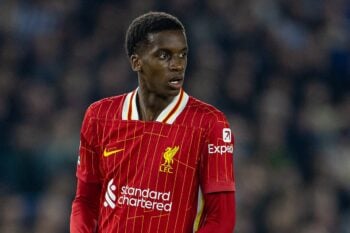


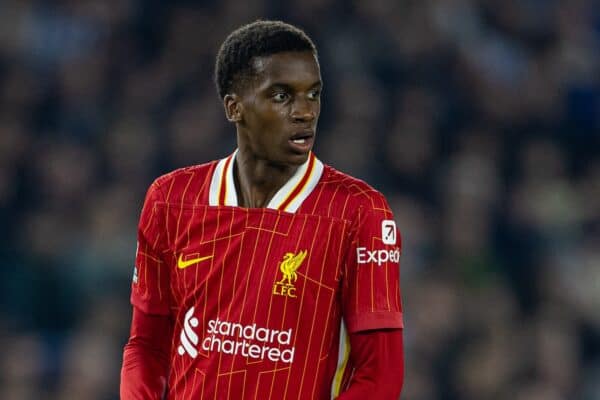
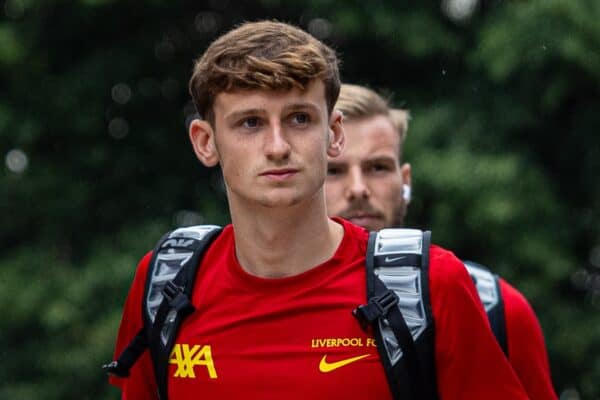

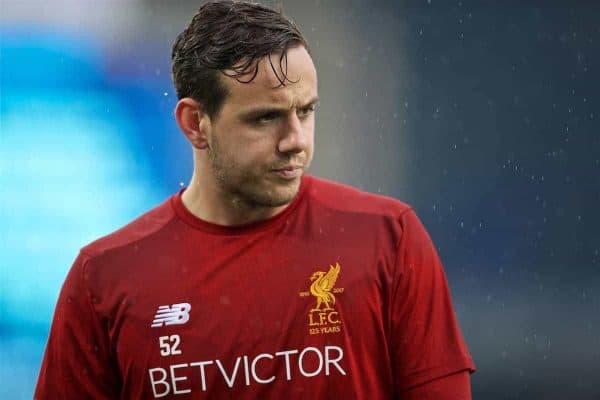
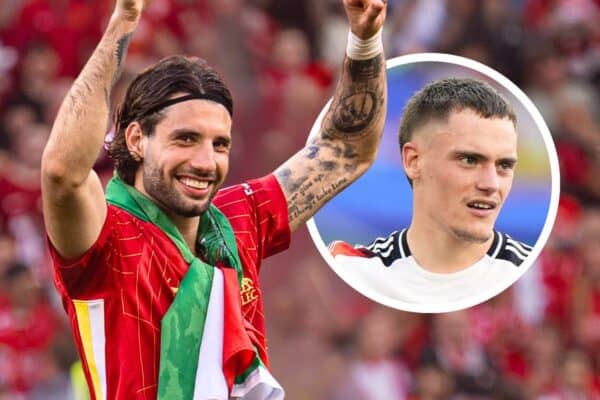
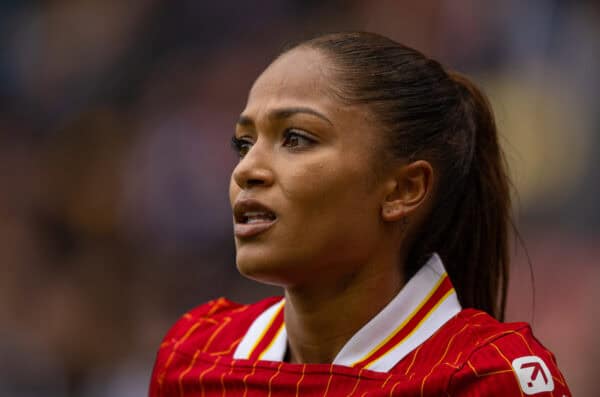
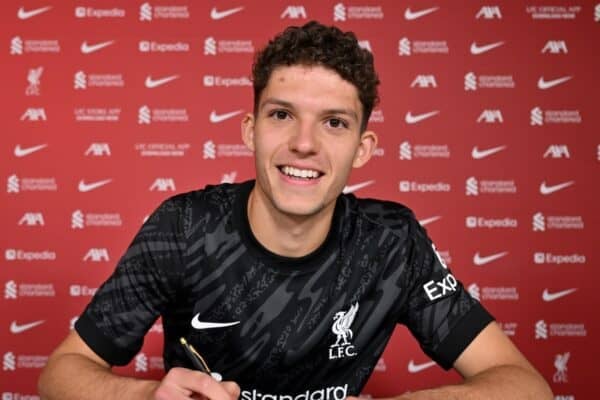

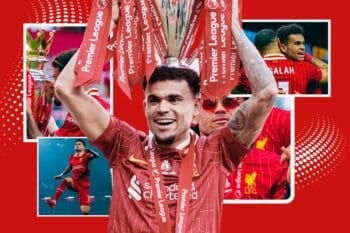
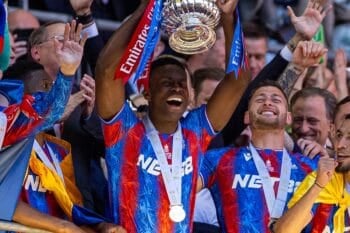
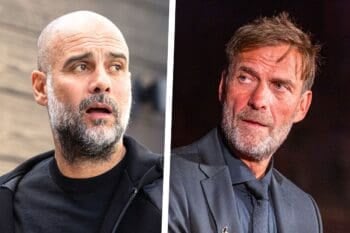
Fan Comments